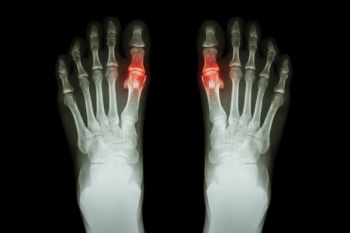
Understanding the intricate relationship between diet and gout is important for those grappling with this painful joint condition. Gout, a form of arthritis, results from an excess of uric acid in the blood, leading to the formation of crystals in the joints, causing inflammation and intense pain. Dietary choices play a vital role in managing gout, as certain foods can either exacerbate or alleviate symptoms. Foods rich in purines, such as red meat, organ meats, and seafood, can elevate uric acid levels, thus triggering gout attacks. On the contrary, incorporating a diet abundant in fruits, vegetables, and whole grains has been linked to a lower risk of gout. Additionally, maintaining a healthy weight and staying hydrated are essential lifestyle factors that can positively impact gout management. By adopting a balanced and mindful approach to dietary habits, individuals can effectively contribute to the prevention and control of gout flare-ups. If you have developed gout, it is strongly suggested that you are under the care of a podiatrist who can help you to further manage this condition.
Gout is a painful condition that can be treated. If you are seeking treatment, contact Dr. Richard T. Bauer from Summit Foot & Ankle. Our doctor will treat your foot and ankle needs.
What Is Gout?
Gout is a form of arthritis that is characterized by sudden, severe attacks of pain, redness, and tenderness in the joints. The condition usually affects the joint at the base of the big toe. A gout attack can occur at any random time, such as the middle of the night while you are asleep.
Symptoms
- Intense Joint Pain - Usually around the large joint of your big toe, and it most severe within the first four to twelve hours
- Lingering Discomfort - Joint discomfort may last from a few days to a few weeks
- Inflammation and Redness -Affected joints may become swollen, tender, warm and red
- Limited Range of Motion - May experience a decrease in joint mobility
Risk Factors
- Genetics - If family members have gout, you’re more likely to have it
- Medications - Diuretic medications can raise uric acid levels
- Gender/Age - Gout is more common in men until the age of 60. It is believed that estrogen protects women until that point
- Diet - Eating red meat and shellfish increases your risk
- Alcohol - Having more than two alcoholic drinks per day increases your risk
- Obesity - Obese people are at a higher risk for gout
Prior to visiting your podiatrist to receive treatment for gout, there are a few things you should do beforehand. If you have gout you should write down your symptoms--including when they started and how often you experience them, important medical information you may have, and any questions you may have. Writing down these three things will help your podiatrist in assessing your specific situation so that he or she may provide the best route of treatment for you.
If you have any questions, please feel free to contact our office located in Latham, NY . We offer the newest diagnostic and treatment technologies for all your foot care needs.
